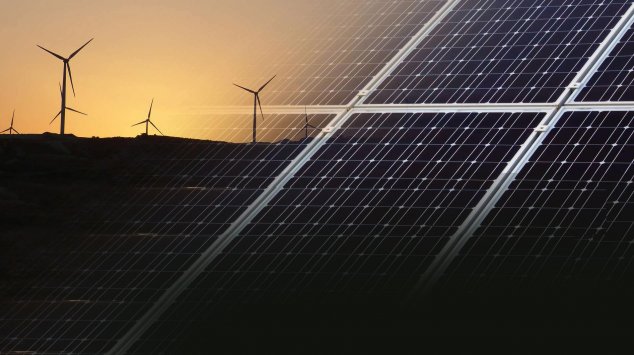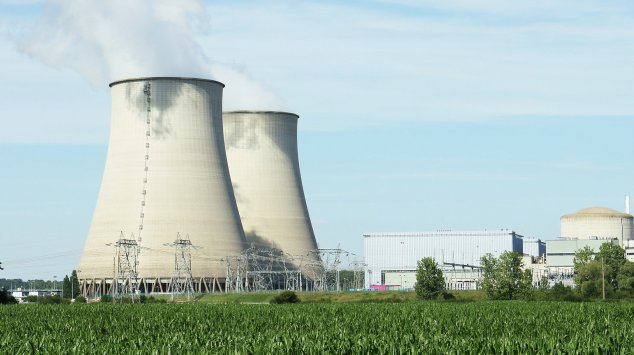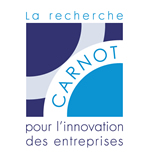Extractive and first-stage processing industries
Extractive and first-stage processing industries cover sub-soil exploration and the extraction and use of resources.
Carnot Institutes strongly involved
And also
Examples of partnerships with companies in the sector
Rock Eval® 7S : a geochemical analysis for oil exploration or soil study in just a couple of hours, with few milligrams of rock or soil.
Partnership Carnot IPFEN Ressources Energétiques Institute - Vinci TechnologiesAnalysing carbon and sulphur compounds in rocks and soil is absolutely essential in geochemistry. Thanks to the partnership between Carnot IFPEN Ressources Energétiques Institute and Vinci Technologies, the Rock Eval 7S analyser® combines instrument, reference materials, calibration methodology and analytical software to deliver unprecedented results.
Rock Eval® 7S : a geochemical analysis for oil exploration or soil study in just a couple of hours, with few milligrams of rock or soil.
Analysing carbon and sulphur compounds in rocks and soil is absolutely essential in geochemistry. Thanks to the partnership between Carnot IFPEN Ressources Energétiques Institute and Vinci Technologies, the Rock Eval 7S analyser® combines instrument, reference materials, calibration methodology and analytical software to deliver unprecedented results.
Supporting Innovation
Rock Eval® is based on thermal analysis technology invented by IFPEN. It is capable of analysing carbon compounds in rocks, soil or any organic compound in less than two hours. It is used by industrial firms, analytical and research labs for fossil fuel prospection (assessing the petroleum potential of sedimentary rocks), analysing soil that has been polluted by hydrocarbons or soil organic matter (key indicator of fertility and carbon storage capacity based around the notion of carbon sinks). The most recent version – the Rock Eval 7S analyser® – which has been marketed commercially since 2019, has an additional feature that analyses the sulphur content of samples and yields more reliable and more accurate results. The first results are available after about an hour of processing, whereas traditional analytical methods are more costly, take longer and require the use of solvents. Specific reference materials and technical calibration guidelines make it possible to calibrate very precisely for each type of application, supported by specific features in GEOWORKS® software.
The client needs
By providing high-tech firms with sensors and lab instruments, especially for analysing rocks and geofluids, Vinci Technologies has become a global leader in tech solutions in the oil and gas sector over the past 50 years with around 100 engineers working in France, India and the US. The Company invests 10% of its revenues in R&D. Its partnership with the Carnot IFPEN Ressources Energétiques Institute has enabled it to develop and market several hundred Rock Eval® models spanning different generations of the product, each one yielding better results and incorporating new features. With a view to consolidating its position as pioneer and staying ahead of the pack, Vinci Technologies and Carnot IFPEN Ressources Energétiques have been looking at new features for a new generation of this equipment. The challenge for this new Rock Eval 7S analyser® has been to quantify the sulphur content of petroleum, kerogen and rock, to distinguish between organic and inorganic sulphur compounds in rock, and to deliver enhanced results through more effective calibration (multi-point and specific to each application), underpinned by new hardware and software components.
Partnership
Carnot IFPEN Ressources Energétiques Institute is a big R&I stakeholder in the energy transition. It helps companies to develop competitive solutions in new energies and minimise climate-environment impacts and to make fossil fuels use more sustainable. Vinci Technologies has been working with Carnot IFPEN Ressources Energétiques since 1993. The Rock Eval 7S analyser® has been able to draw on 15 years of Carnot basic and applied research to develop new technological features and analytical methods – protected by four patents – and enhance the quality of its analyses. The SME has included five new reference materials which, coupled with a new calibration protocol, have enhanced the reliability of Rock Eval®. The company's technological developments have endowed the product with new electronics and system software, a brand new interface and specific features from GEOWORKS® geochemical analytical software. Thence, a product with a real competitive edge was unveiled at the 2019 annual conference of the American Association of Petroleum Geologists in Texas.
A number of instruments have already been sold. The Rock Eval® range contributes nearly 10% of Vinci Technologies’ revenue and the company was recently able to hire two engineers. These results are a testimony to the value of a long-term “research” partnership for tackling the challenges of an SME working in the oil industry where regulations on sulphur are becoming increasingly stringent. Fresh studies should make it possible to add even more features to the Rock Eval 7S analyser® and consolidate the dominant position of these partners in geochemical analysis.
A start-up launches helium exploration and production in Europe
Partnership Extra&Co / Carnot ICÉEL - 45-8 EnergyAlthough helium is an essential input in the electronics, aerospace and medical industries, it is not produced in Europe and its price has trebled in less than five years. 45-8 Energy aims to seek out native helium and produce it locally in an environmentally responsible manner.
A start-up launches helium exploration and production in Europe
Supporting Innovation
Helium is a highly volatile gas that easily passes through geological formations to reach the atmosphere. A start-up called 45-8 Energy is deploying a new method of exploration that involves measuring gas flow over time with specially-designed sensors. It came up with the idea of tracking surface gas as a means of detecting the deep, naturally-occurring reservoirs where the helium is trapped. To speed up exploration, it is necessary not only to identify the gas but to characterise fluxes (i.e., concentration, changes over time and in accordance with ambient conditions), and have this data in real time to be able to either approve or reject the potential viability of a site. For this, a strong and reliable sensor, tried and tested under real conditions is absolutely essential.
Because the company is taking up a major industrial sovereignty challenge by seeking out native helium that can be made rapidly available throughout Europe and with a greatly-reduced carbon footprint, this is the first sub-surface exploration project to be awarded the GreenTech Verte label by the French Ministry for Ecological Transition.
The client needs
45-8 Energy was set up near Metz in 2017 and its name refers to the latitude and longitude of the area of western Europe to be explored in its search for native helium and hydrogen. Because none of the benchmark sensors available on the market had proved suitable, the company wanted to develop a special sensor of its own. The Carnot Extra&Co consortium was set up to facilitate access to SMEs with R&D expertise in extracting raw materials. Following initial contact with the consortium made during “Geoenergy days” organised in the south-western French city of Pau, 45-8 Energy had a detailed discussion with the chargé d’affaires for the north-east of France. It was impressed by the project director’s grasp of the specific issues involved and was rapidly put in touch with the Carnot ICÉEL GeoRessources lab, which tested the sensor in real field conditions (i.e., temperature, pressure, humidity, gas mixture composition) using its hydrothermal experimental platform.
Partnership
Carnot ICÉEL Institute aims to tackle energy-related and environmental societal challenges and pave the way for more sustainable processing of natural resources. This is the background to its partnership with 45-8 Energy to develop new sensors, particularly for analysing locally-occurring helium and hydrogen. The goal is to obtain 20 remote measurements a day without any human intervention.
A long-term relationship has been established to unpick the “technological locks” on this development. The company has launched new R&D partnerships with the GeoRessources lab (1 PhD and 1 post-doctoral researcher) and other Carnot ICÉEL Institute labs such as LRGP (specialised in reaction and process engineering) who are working on gas separation.
The company has performed an initial study in the Nièvre department following an application for an exclusive research permit for the exploration of helium, carbon dioxide and related gases. 45-8 Energy has been able to leverage the potential of this successful partnership to raise the funds needed to finance its future development.



